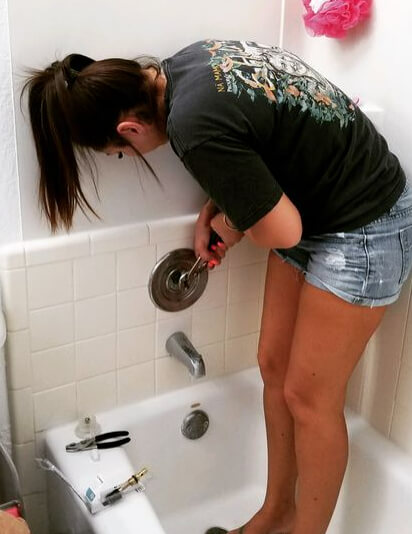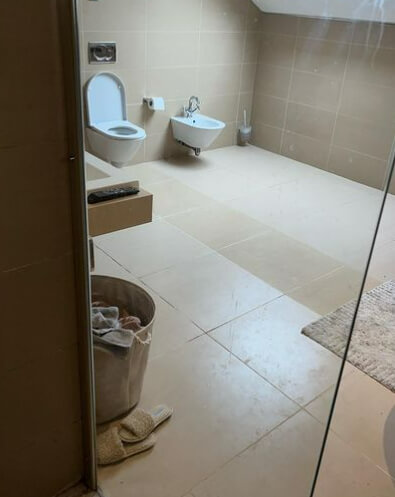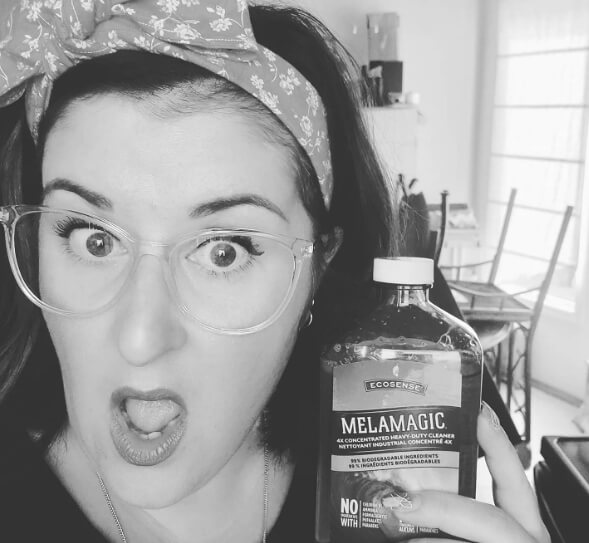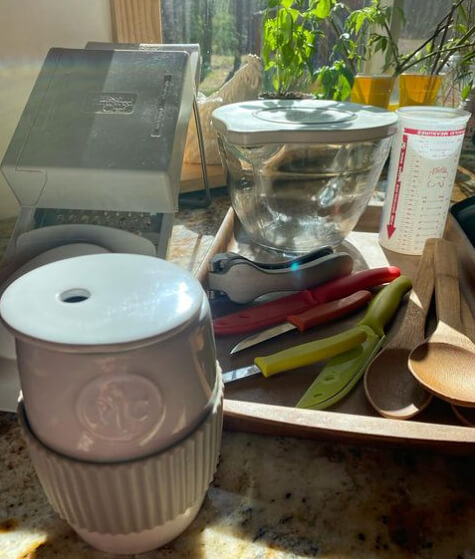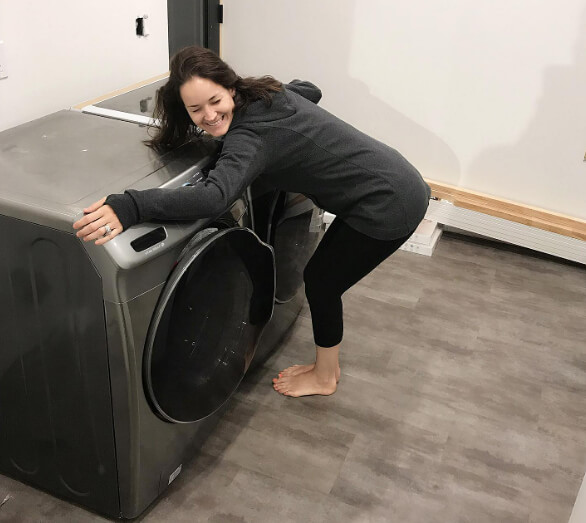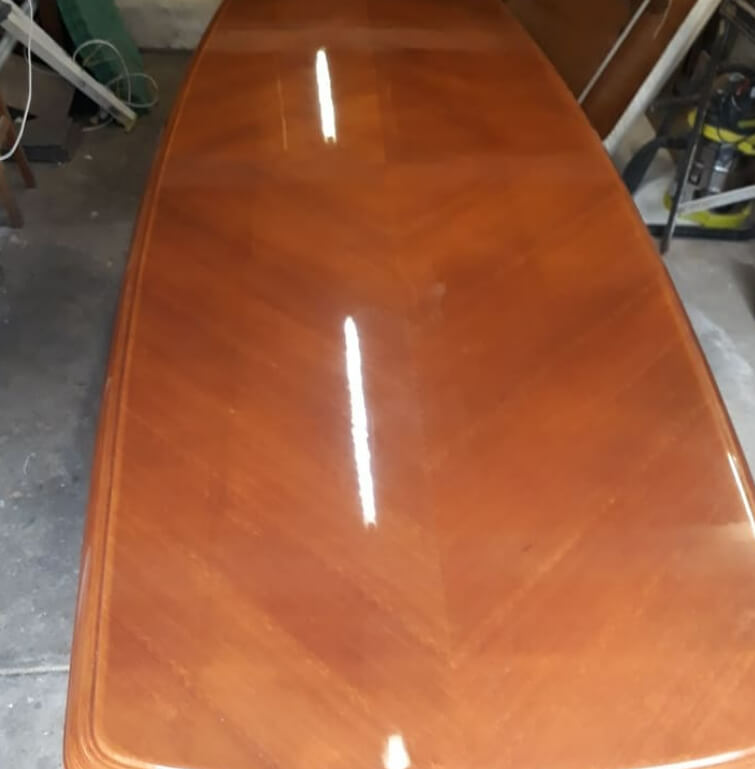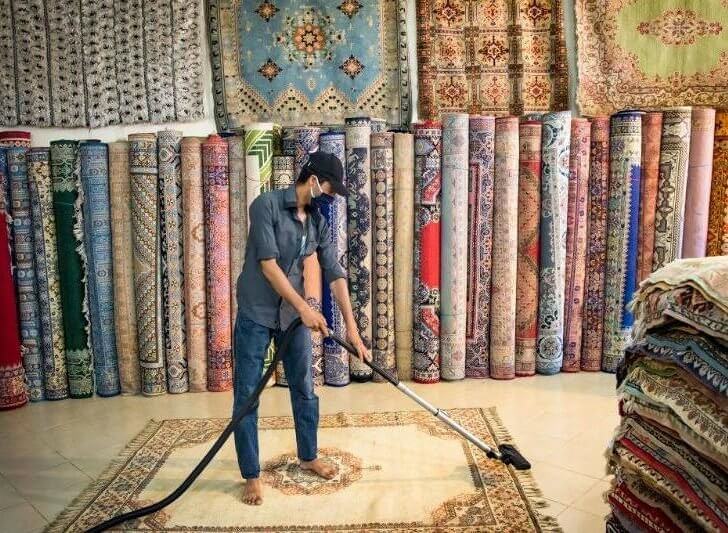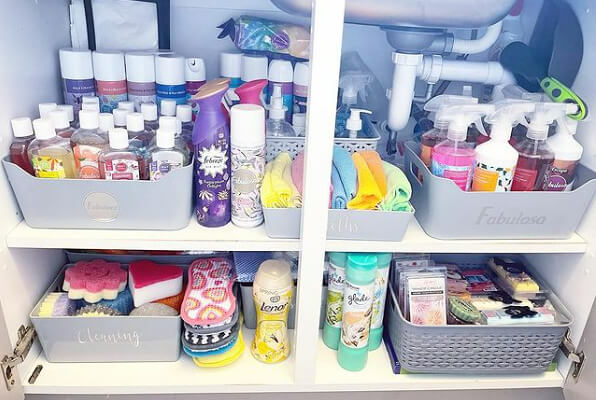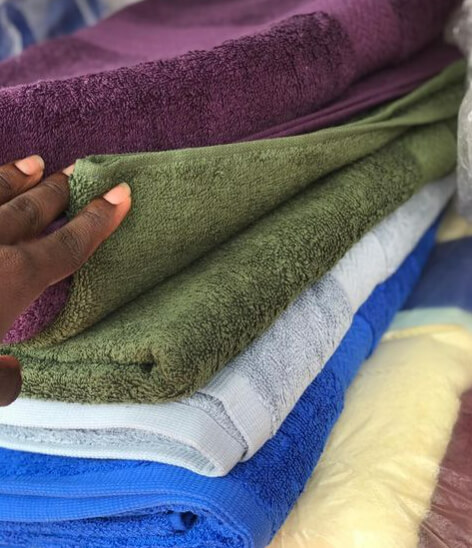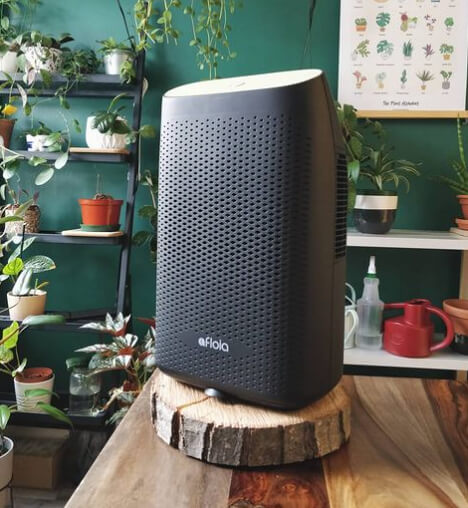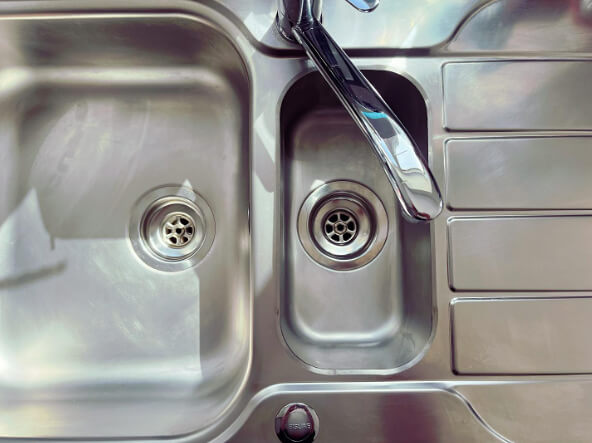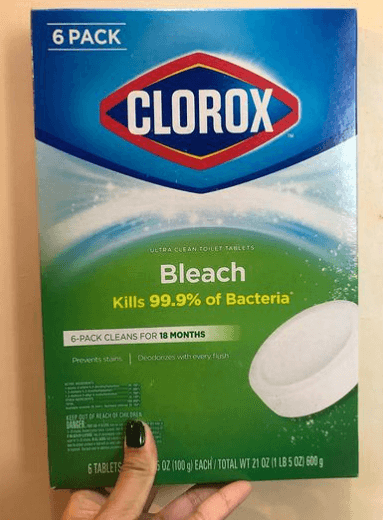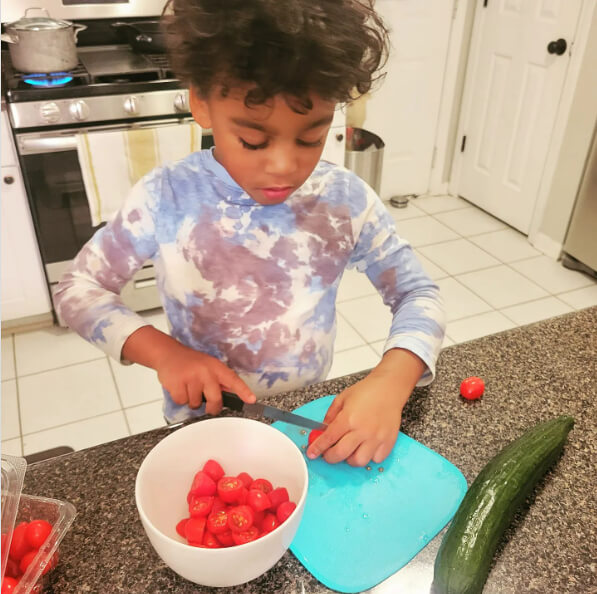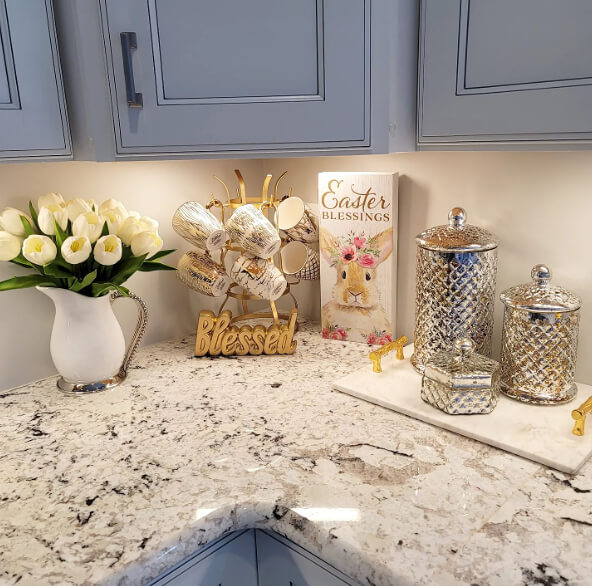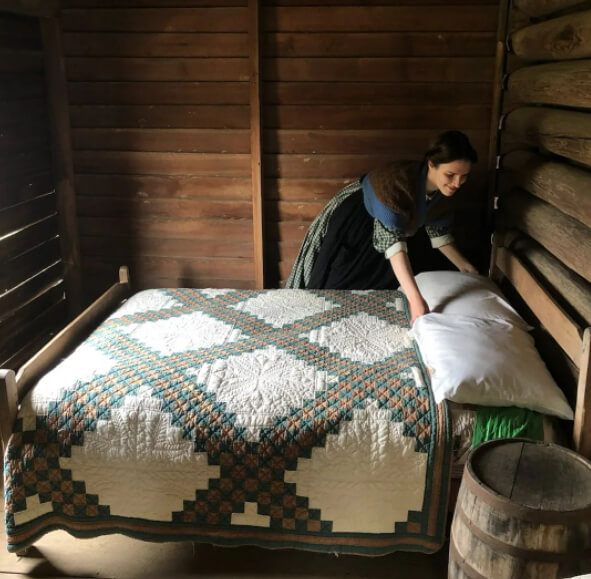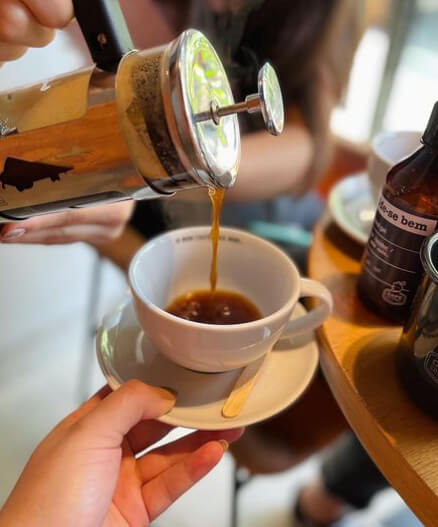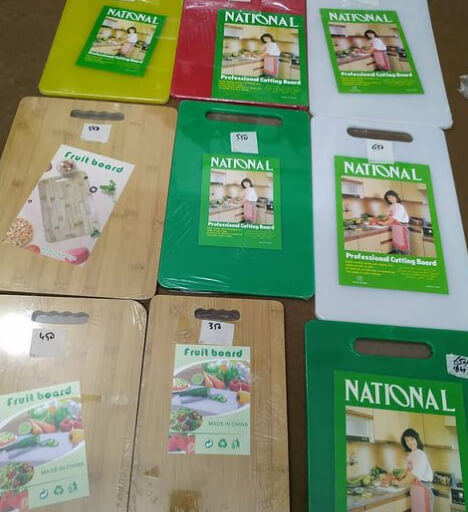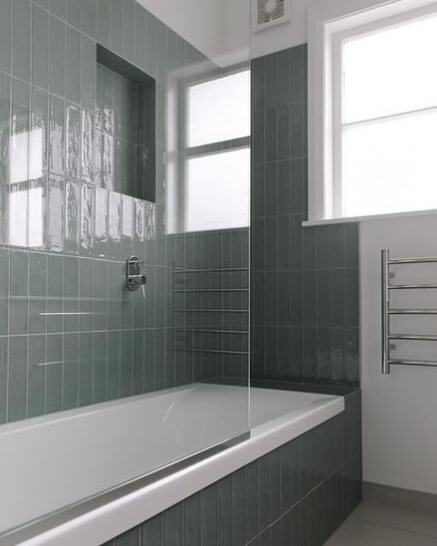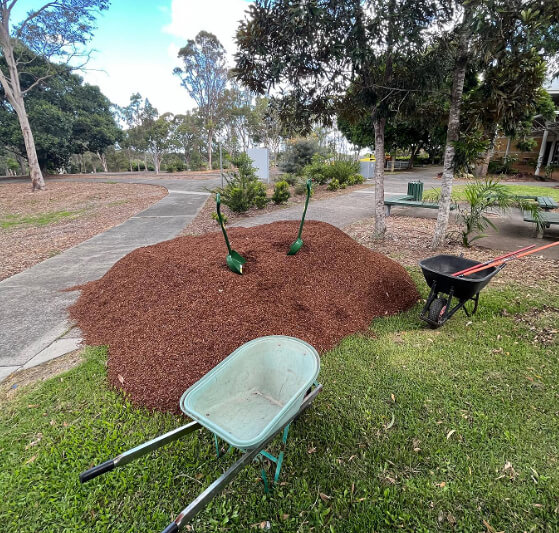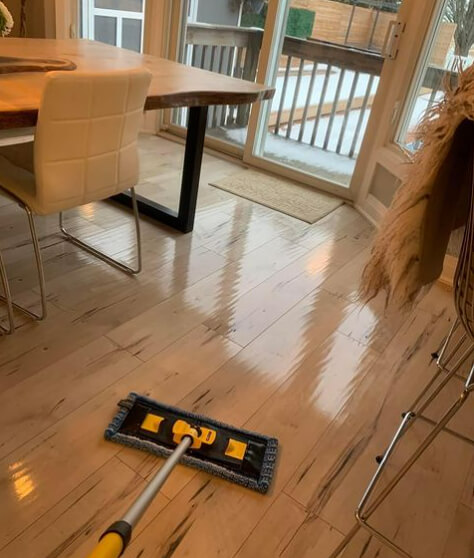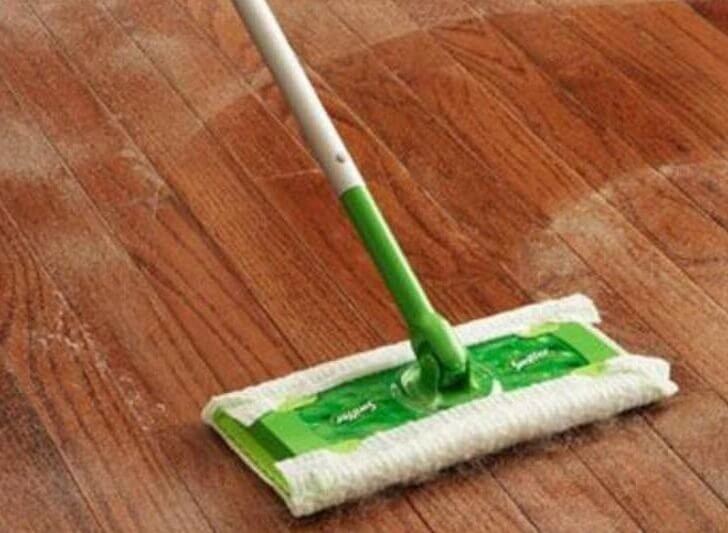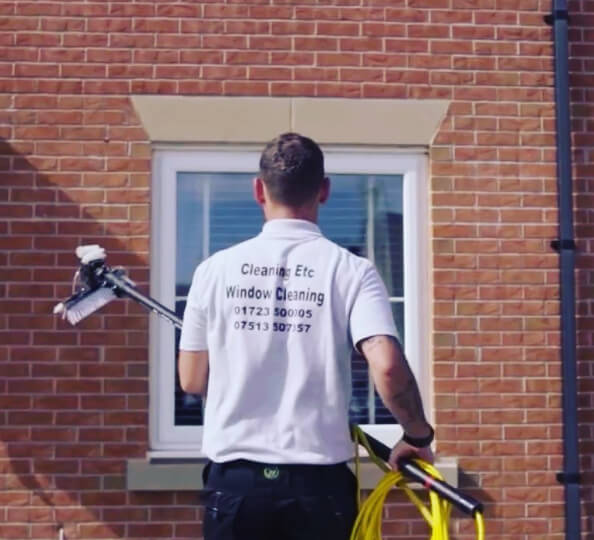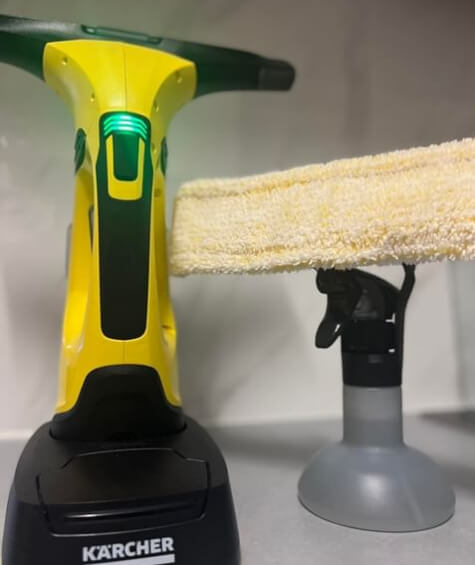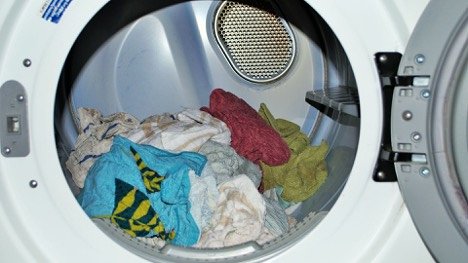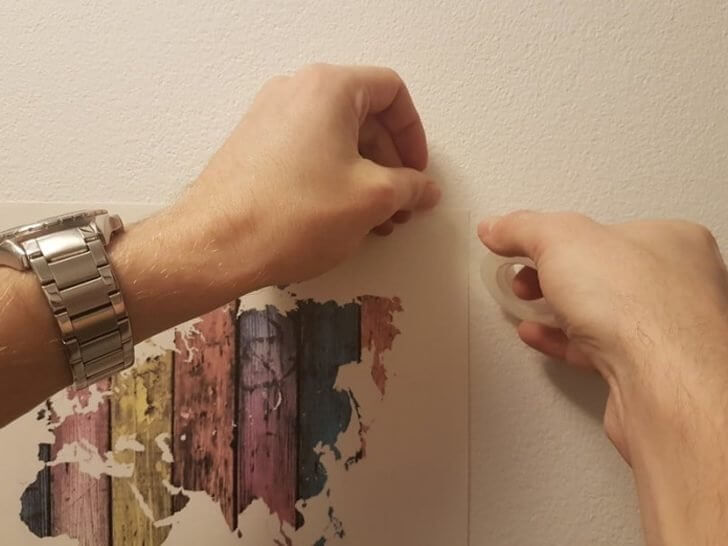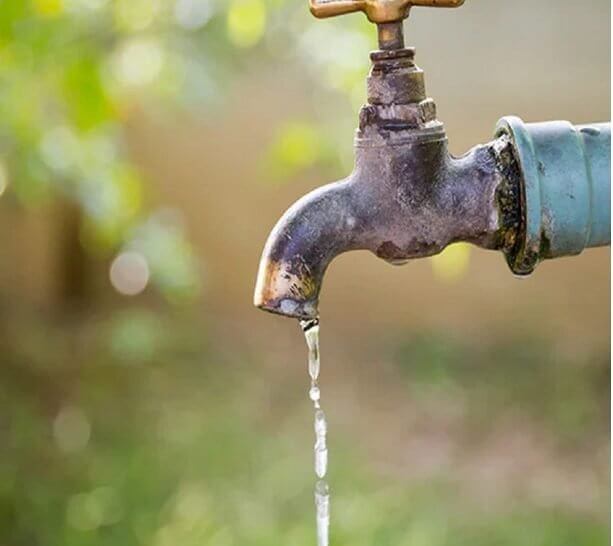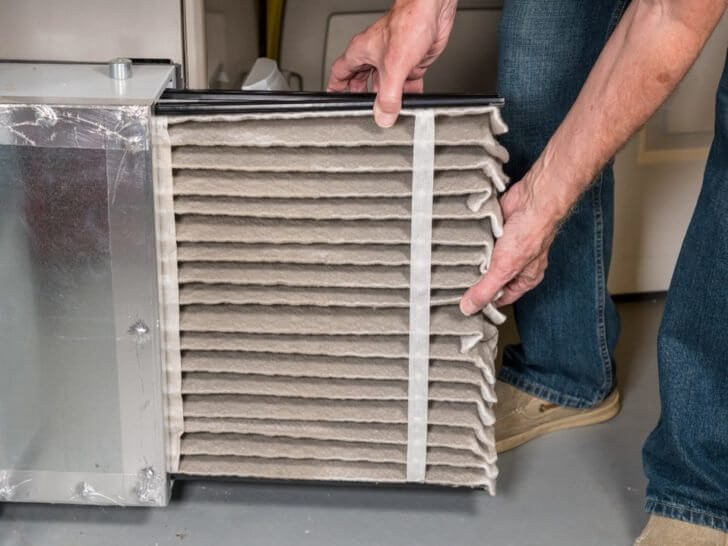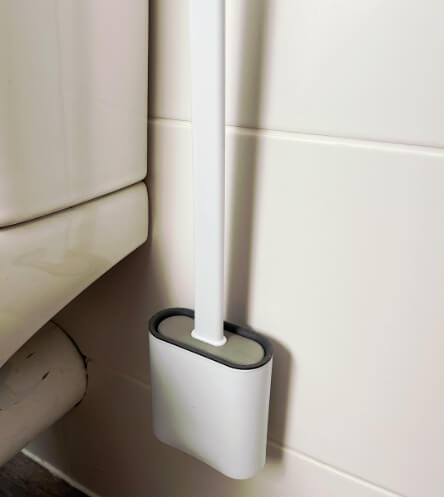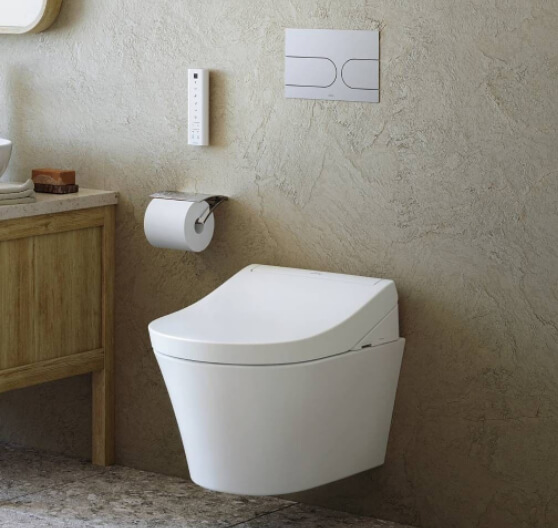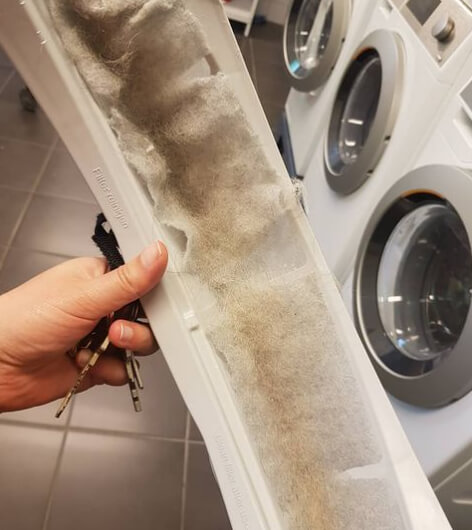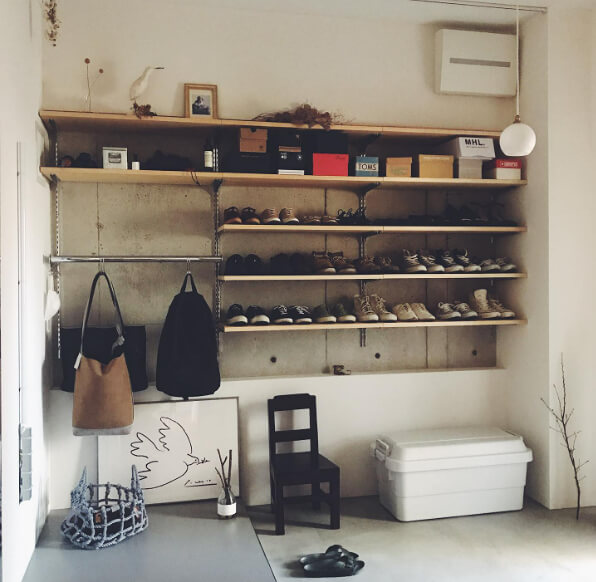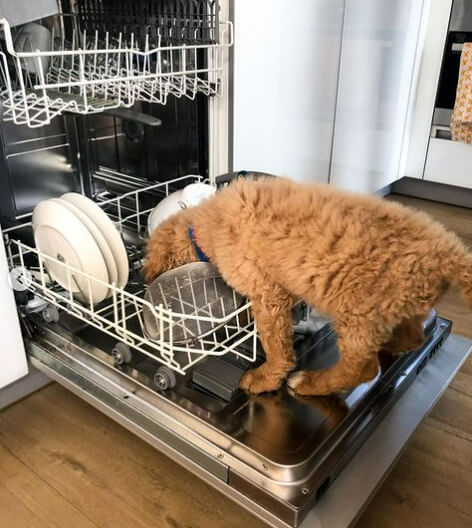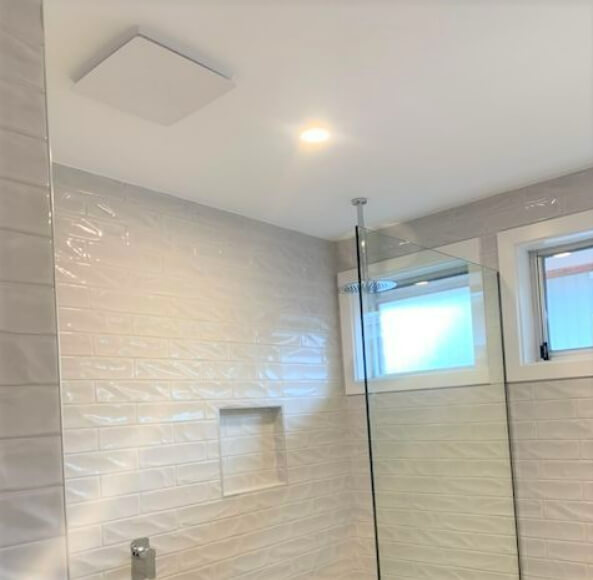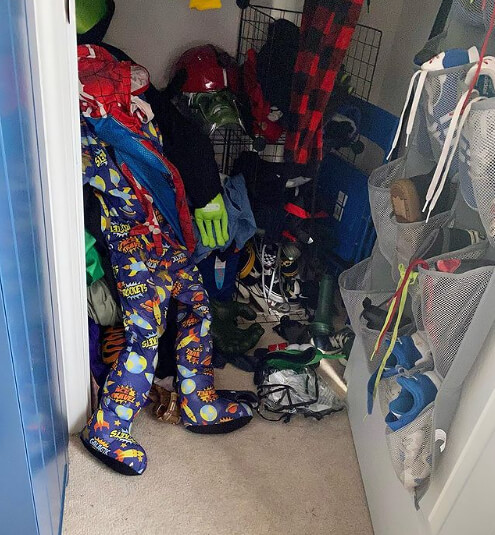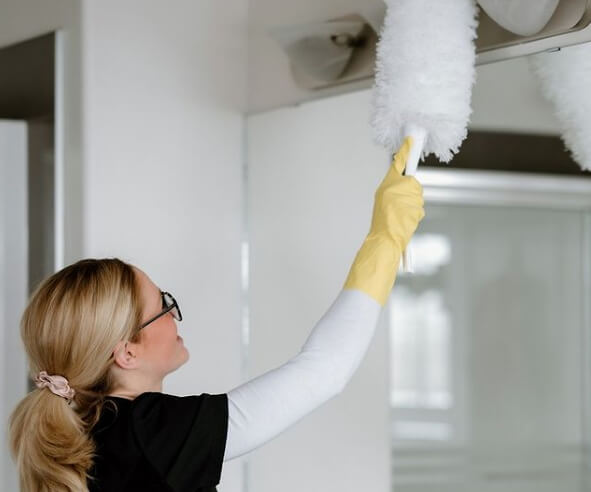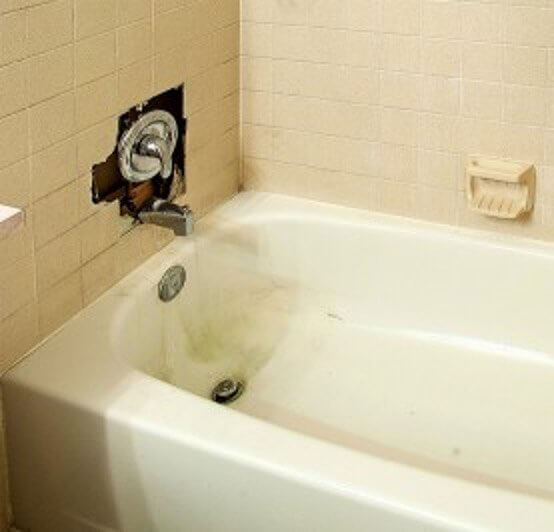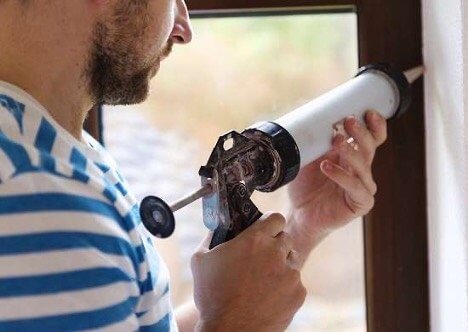Dry Those Dishes Before Stacking
Stacking dishes while their still wet can cause them to retain moisture. This is especially true if they are stored in a cabinet or cupboard as the water has nowhere else to go. Researchers have found that stacked dishes that retained water for at least 24 hours became prime locations for bacteria growth. Nobody wants to end up with a food-borne illness, so next time you wash dishes make sure to allow them to air dry or dry them with a cloth before storing.
There is also the option of drying your dishes while they are still in the dishwasher. Most dishwashers have a sanitation cycle or at least a drying cycle you can take advantage of.
Leaky Faucets Can Quickly Lead To Other Issues
Probably one of the most common problems on this list, leaky faucets can actually turn into quite serious problems if not dealt with. One of the biggest issues they can cause is rust. While your sink and faucet are designed to handle water, it's never a good idea to allow them to be continually in contact with moisture. This can lead to them wearing down much quicker and rusting, particularly around their bases.
Another potential problem includes mold and mildew. Leaky faucets result in moisture that doesn't just pool in the sink and actually finds its way to other areas of your home, resulting in mold and mildew.
Tiles Can't Stand Dirt
While it might seem obvious that you should regularly sweep or vacuum your floor, the reasons behind why this is so important for tile might not be immediately clear. Tiles, at least real tiles, are usually made out of some type of stone. And we all learned what happens to rocks when they are hit with an abrasive material or come in contact with water. That's right, they can start wearing down.
Tiles are no different and all of that sand people track inside then starts to rub over the tile every time it's stepped on. So, if you want your floors to look great and lasting, make sure to sweep them regularly.
Avoid Cleaners That Contain Dyes
Another tile tip to keep in mind when cleaning floors or backsplashes. Sometimes, those cleaners you use contain dyes or other colors, which are prone to seeping into the grout and white tiles. It's best to avoid this completely by making sure any cleaner you use to clean your bathroom, kitchen, or flooring is colorless. Of course, the colors will usually only seep into tile made out of natural stone, but it can still seep into grout so best to do away with it completely.
if you're not sure what to use when cleaning your tiles, try using a purpose-made cleaner that clearly states it was made for tiles. There are a lot of sites out there that propose you use a vinegar mixture but that can lead to its own problems (which we will get into in a bit).
These Items Shouldn't Go In A Dishwasher
While dishwashers can be great for quickly washing dishes and then drying them, there are certain items that are better to wash by hand. These can include things like graters and garlic pressers, basically, anything that has small nooks and crannies a dishwasher might not be about to reach. The reason for this is quite simple. If there is any food leftover on these items after washing then that food can become spoiled and end up causing health issues.
So, best to wash items like this and avoid any potential food left to sit there and rot away. Some people also recommend that you use a brush instead of a sponge when washing dishes as sponges tend to retain bits of food if not sanitized properly.
Never Leave Clothes In The Washer
We've all been there. You've just finished washing a set of clothes but it's really late and you're really exhausted, so you leave them in there overnight. This is a very bad idea and for pretty obvious reasons. Doing so can promote the growth of bacteria and even lead to mold. Nobody wants to wear moldy clothing that smells all funky, so next time just take the 30 extra seconds and throw your laundry in the dryer.
Having to rewash clothes after they've already been washed also wastes water, which is an important resource. This is especially true if you happen to live in an area that doesn't have enough of it.
Go Easy On The Wax
There are tons of websites out there that advise people to use wax or oil when polishing their wooden furniture. However, these types of items should be used sparingly, especially so if you live in a humid climate. The only time a piece of furniture needs wax or oil is if it appears extremely dry, which should not be very often if you live somewhere humid. Oils and waxes are meant to prevent the wood from cracking or to help seal furniture that does not have a finish.
Oils usually work better for pieces that have a polyurethane coating, while waxes help seal bare wood. But, both should be used sparingly and can result in buildups if used too often or not applied properly.
Never Shampoo Your Rug
Rugs have been around for centuries and we're pretty sure everyone has seen someone beating a rug to clean off debris. It actually turns out that this is the most effective way to clean a rug. Shampooing rugs can actually have some pretty scary consequences we will get into in a second, but the next time you decide to shampoo your home or floors, just take the rug outside and beat it with a racket.
We all know that rugs can contain some pretty harmful dirt and bacteria lurking deep in the carpet, but if you actually decide to shampoo your rug then it can stir up things like mold spores which, when airborne, can be very harmful.
Using Too Much Of A Good Thing
Taking care of your home and making sure it's clean is great and all, but be careful how much cleaner you use to do this. Using too many products is usually not a good idea as those different products contain different chemicals that can get left behind and then interact with each other. Making sure something is clean is good, but having too many chemicals spread throughout your home isn't.
If you must clean and think that you have already used too many cleaning products, try diluting soap or using a natural cleaner such as lemon juice. But be careful here too, as lemons can be quite acidic and might not be the best cleaner for every job.
Storing Towels In The Bathroom
You may not think about it very often, but bathrooms are one of the most moisture-ridden places in your home. This is why it's usually not a good idea to store your towels in your bathroom. It might seem like a logical place at first, but doing so can actually promote the growth of bacteria. Towels that are left here, along with all the water and steam, make for great incubators.
A better place to store your towels might be a hallway closet or somewhere similarly dry. A bathroom pantry might work as well, assuming it's clean and keeps out humidity.
Protecting Hardwood Floors
Speaking of humidity, too much of it is also really bad for hardwood floors. If it's starting to sound like moisture is one of a homeowner's greatest enemies then that's because it pretty much is. If you want to protect those nice, expensive floors from moisture, consider investing in a dehumidifier. These can help suck out a lot of the water in the air that would normally damage your floors and other parts of your home.
They can also help prevent the growth of mold, and if you already live in a humid environment are a must-have. Nobody wants their expensive hardwood floors to start cracking and coming apart.
Keep Grease Far Away From Sinks
This is fairly common knowledge, but it should be said that things like fats and grease should never be thrown down a kitchen sink. Grease and fats are thick and prone to getting stuck in drains and solidifying. This can quickly lead to blocked drains and you calling a plumber to remove the fatty buildups in your pipes. There is actually another easy way to properly dispose of grease and other fats.
You can keep a container around and fill it up with any leftover grease after you finish cooking. Once it solidifies, simply throw it in the trash and be done with it.
Bleach And Hardwood Floors Don't Mix
Another tip for anyone out there with hardwood floors, avoid using bleach to clean them. It's simply too strong to clean hardwood floors and can seriously end up damaging them. This is because bleach strips the polyurethane coating protecting those beautiful floors from environmental damage. Without this sealant, your floors are vulnerable to all kinds of different factors. This can include things like moisture, dirt, and dryness which can lead to cracking.
They will also lose any sheen they might have if their coating is stripped away. A better cleaner might be simple soap and water or you can always look for cleaners made specially to clean hardwood floors.
Try To Avoid Dish Soap To Clean Cutting Boards
This one might come as a surprise to some people. Dish soap is actually not the best thing you can use to clean your cutting boards. If you use dish soap then those tiny microbes will just end up on your sponge or are too deep in a cutting board's crevices to get to in the first place. Instead, try using hydrogen peroxide to clean your cutting boards and really get down in those knife cuts.
This will help eliminate any threat of food-borne illnesses that might otherwise be present when using a sponge and regular dish soap. Just make sure your board is well-oiled as peroxide can dry out whatever it touches.
Keep That Vinegar Away From Granite
Granite countertops are some of the most durable surfaces out there. However, even they use a sealant, much like hardwood, that is meant to protect the stone and give it a nice sheen. And while many people might tout vinegar as this cure-all cleaner, you should avoid using it to clean your granite countertops. It can actually strip away that shiny sheen and have your countertops looking dull after numerous uses.
Water and soap are much better cleaners to use for daily use. However, if you really want to deep clean your countertops, you can dilute some alcohol and mix it with water to kill off any germs that might be lurking around.
Pasta Water Is Bad For Drains
While it's pretty common knowledge that you shouldn't flush things like grease or oil down your kitchen sink, avoiding pasta water might come as a surprise to some people. The truth is that pasta water can build up in your drains, as fatty deposits, and create a real headache down the line (no pun intended). Instead, we actually have a much better solution to dispose of all that starchy water.
You can actually use pasta water as fertilizer for your garden. It provides carbs for your plants and can help them grow. However, just be sure that the water is unsalted if you decide to water your plants with it.
Wait A Bit Before Making Your Bed
No, we are not proposing that you procrastinate when it comes to making your bed. Well, actually we kind of are. When it comes to making your bed first thing in the morning, you can end up trapping any moisture from your body underneath your sheets. This of course makes for a subpar sleeping experience the next night, so we recommend waiting a little while to allow any moisture on your sheets to air dry.
However, if you decide to wait, just don't forget to eventually make that bed. It can lead to a more productive start to the day that has a cascading effect.
Keep Coffee And Tea Away From Porcelain
We all know what kind of effects coffee and tea can have on one's teeth. But, did you know it can have the same exact effect on porcelain? This is why it's generally a good idea to avoid throwing them down your toilet or bathroom sink. However, you might want to avoid flushing them down the kitchen sink as well as they can lead to the build-up of fatty deposits much like pasta water.
Instead, try and use them in the same way you might use unsalted pasta water. You can give it to your plants as fertilizer which will help them grow. This also applies to coffee grounds.
Beware Plastic Cutting Boards
Plastic cutting boards might seem like a convenient alternative to wood, but this simply could not be farther from the truth. Plastic cutting boards tend to harbor bacteria more than wooden cutting boards, which are easier to clean. Studies have also shown that wooden cutting boards are generally more sanitary than plastic boards. They are also easier on your knives, ensuring that they will retain an edge for much longer than they would when paired with a plastic board.
Finally, there is also the possibility of tiny plastic fragments, or microplastics, being released every time you make a cut on a plastic cutting board. So, be environmentally friendly and stick to wood or bamboo when cutting up food.
Avoid Using Toilet Bowl Cleaners For Tile
While tiles are extremely hardy and used in everything from flooring to shower walls, they do have one weakness. The grout that you see in between each tile is what actually holds them onto the wall and protects the underside of the tile. However, grout can also sometimes be prone to breaking apart and coming off a wall. This is especially true if you use toilet bowl cleaner to clean your tiles.
Toilet bowl cleaners are usually very acidic, which is fine for cleaning porcelain, but be sure to keep it far away from any tiles. The last thing you want is your floor covered in grout and tiles falling off walls.
Protect Rooms By Closing Curtains
While there is nothing better than opening a few windows and letting some fresh air into a room, leaving your curtains open indefinitely can actually damage some of the items in your home. Too much light, or UV to be more precise, can have harmful effects on furniture and textiles. It can cause both to fade. They also have the added benefit of keeping rooms cooler and hot air out.
So, if you want to keep the interior of your rooms nicer for longer then be sure to keep curtains closed when the sun is shining a bit too brightly outside.
Mulch In Areas Away From Your Home
Mulch is great for keeping out weeds and making sure your plants are the only thing growing in a flower bed or garden. However, they also retain water, which is good for tiny plants but not so good for your home. Stagnant water and wet soil around your home can lead to foundational issues and cracking, which are some of the worst and most expensive things to fix for a homeowner.
Mulch is also a great place for termites, which shelter there and feed on wood chips used in mulch. So, best to avoid mulching anywhere near your house and instead be diligent in weeding areas close to your home.
Don't Drench Wooden Floors
While wooden flooring is often very beautiful and hardy in its own right, you should still be careful when it comes to keeping them clean. Wood is often susceptible to water damage and the same thing is true of your flooring. Too much water can cause boards to bow and in extreme cases become waterlogged and begin to rot away. Too much water can also just cause wooden flooring to come apart.
Instead, use water sparsely when cleaning wooden flooring. The polyurethane coating on wood flooring should be enough to protect it from a little bit of water, as long as you don't flood the house when cleaning.
Are Dust Pads The Best Option?
The answer is no, and we'll tell you why. Dust pads and Swiffer products might seem like they're great for quickly getting floors clean, but in reality, they usually end up attracting more dirt in the end. This is because they leave behind a layer of residue that actually attracts dust. This in turn leads you to have to break out the Swiffer more often and forking over more money for their products.
So, it's better to just clean your floors the old-fashioned way, with a broom and mop. It really does not take much time and it doesn't attract more dirt the way a Swiffer does.
It's Okay To Not Obsess Over Clean Windows
While maintaining your windows' cleanliness is important, it's actually okay to not obsess over every little spot. Overcleaning can be bad for your own health. However, if you are going to clean your windows constantly, then be sure not to do it on a sunny day, as this usually results in more streaks. Professionals recommend that you clean your windows on days that aren't too warm and have overcast skies.
However, with all that said, it's actually only advised to clean your windows a couple of times each year or on a seasonal basis. Doing so more than that can attract dirt and doing so less can harm a window's structural integrity.
Remember To Clean Your Tools
It might seem obvious that you should always keep your cleaning supplies clean, but how often do you actually do that? If the answer is not very often then you might not be doing much more than moving around dirt every time that you clean. Things like mops, sponges, and other cleaning supplies should be sanitized with warm water and soap fairly regularly. Otherwise, you might be contaminating your home with bacteria.
That's right, those floors and dishes might look cleaner, but if you failed to clean your supplies then you've likely just spread a bunch of harmful bacteria around your home.
Overloading A Washer Or Dryer
It's safe to assume that procrastination around washing clothes is pretty common. However, this often leads to everything going in at once and putting too heavy a burden on your washer or dryer. This can actually end up damaging your machine and the drum. If you've ever heard or noticed your washer rocking then you know what we are talking about. It can also cause your washer's belt to come off.
It's better to not damage that really expensive machine that's responsible for keeping your clothes clean and instead wash your clothes regularly. Your washer will thank you for doing so.
Adhesive Tape Is For Paper, Not Walls
It might be tempting to stick a photo or poster to your wall using adhesive tape, but you should avoid doing this at all costs. Adhesive tape can peel off paint and damage drywall when it's finally time to pull it off. And if you've ever been stuck painting a wall then you know it's much easier to protect paint than to have to fix it.
If by some miracle you do manage to get the adhesive tape off a wall without peeling anything else off with it, then you might be left with some discoloration. Instead, try using a nail or specially made adhesives.
Always Make Sure Your Water Is Tested
Making sure the water pumped into your home is safe and doesn't contain too many minerals is one of the most important things you can do as a homeowner. It's relatively easy to test your water and can end up saving you piles of cash down the road. If your water turns out to be hard or contains too a high mineral content with things like iron, then you can install a water softener.
While a high mineral content is usually fine for your health, it can do a number on your pipes and lead to them breaking down. This in turn can lead to flooding issues and burst pipes.
Check Your Filters
The HVAC filters in your heating and cooling systems play an important role in catching dirt and other harmful material floating around in the air. They can also result in higher-than-normal heating and cooling costs if not well maintained. Always make sure to check your filters and clean or replace them if they appear to be too dirty. They are relatively cheap and play an important role in maintaining your home.
Dirty filters can also end up damaging your heating and cooling systems. If you are a renter, then remember to always ask your landlord about filter checks and to figure out whose responsibility it is to maintain them.
Dry That Toilet Brush
While it might be common to place a toilet brush in its holder right after using it, there really is a better way. If you do end up placing a wet brush back into its holder, then you are asking for bacteria and potentially mold to start growing. Instead, try dipping it in a sanitizer and then setting it somewhere to dry. This somewhere should preferably be outside, where the sun can also help sanitize a brush.
After it dries, you can set it back in the holder knowing there won't be any harmful bacteria growth taking place. After all, it's always a good idea to make sure your cleaning tools are clean.
Turns Out Flushable Wipes Are Bad For Drains
While advertisers might claim that flushable wipes are safe to flush down the toilet, the simple answer is that they just aren't. They're actually woven and do not break apart easily. This can lead to them clogging up your plumbing and becoming a nuisance. Yes, that's right, all those advertisements and marketers lied to you. The truth is that even if they make it past your plumbing, then they can end up clogging sewers.
So, the next time you're tempted to buy some flushable wipes just remember that they can end up costing thousands in plumbing repairs or even worse, block local sewage systems.
Clean Out Lint Filters
The lint filters in your dryer actually play an important part in keeping your home safe and lint-free. However, if you fail to regularly clean them out then the results can be disastrous. The tiny pieces of lint can easily accumulate and end up being a fire hazard just waiting to start. And with the extreme heat often found in dryers, this is a less than ideal situation to have.
Experts recommend that you always clean out the lint filters in your dryer. It keeps your clothes and your house lint-free and also prevents a fire from starting.
Take Those Shoes Off Outside
While many households have rules about leaving shoes at the door, it's also not a bad idea to leave them outside completely. Shoes can track dirt, mud, bacteria, and bugs. So, why not protect your home completely and just leave shoes outside? Nobody wants bugs and bacteria roaming around the house. What's more, the eggs of many insects can attach themselves to the bottom of shoes and end up hatching on your floors.
Shoes can also track pollen. And if you find yourself having bad allergies, even indoors then it might be worth it to place a rack outside and make everyone place their shoes there.
Manually Clean Your Dishwasher
Most dishwashers do have a cleaning cycle. However, this doesn't always end up cleaning your dishwasher's filter located at the bottom of the machine. Instead, you usually have to clean these manually. Yes, we know, but doing so can help keep your dishwasher and dishes cleaner. It can also ensure your machine runs better for longer. And why wouldn't you want that expensive machine to last as long as it can?
It's a small task that can usually be done with a little soap and water, but it can end up paying dividends and help keep your home more sanitized.
Exhaust Fans Are There For A Reason
Yes, yet another tip to keep that moisture from ruining your home and your health. Always remember to turn on any exhaust fans in your bathroom after or during a shower. They help remove moisture and any other harmful things floating around in the air. They also have the added benefit of keeping mirrors from fogging and sucking out airborne bacteria that get thrown around from flushing and taking a shower.
As we've said before, one of the biggest threats to maintaining any home is moisture. And exhaust fans are key to preventing humidity from lingering around and damaging different parts of your house or apartment.
Go Easy On Your Closet
While many of us may have closets filled to the brim with clothes we never actually wear, this can be really bad for our walls. Too many clothes can weigh down the rods we hang them on and after a while lead to them coming down. When this happens it damages your wall more than all those clothes damaged your wallet and can lead you to spend extra money to get it all fixed.
Instead, try to get rid of some of the clothes you no longer need or wear. If you can't do that then consider just folding a few items and storing them on shelves or in drawers.
Feather Dusters Aren't Actually That Great
Yes, you read that right. Feather dusters are a cleaning staple, but they actually aren't that great for removing dust from your home. They actually only move dust around. Think about it. When is the last time you removed the dust from a feather duster? That's because they simply shift dust around to another place, such as your floor. Instead, try using a product that actually captures the dust and is thrown away.
Of course, feather dusters can just be used to brush aside dust onto a floor or couch, which is then swept or vacuumed, but why work doubly hard?
Keep Strong Chemicals Away From Tubs And Sinks
While tubs and sinks might seem resilient to harsh chemicals, they're actually not. This is also true of abrasive materials like steel wire and powdered cleaners. All of these things can end up harming the different components of tubs and sinks over time, such as drains or tiles. The high acidity of many of these chemicals is bad for things like grout, steel, and adhesives you might find in your drains.
Instead, try finding a cleaner that is specially made for these items. Keeping tubs and sinks clean is important, but so is making sure they are well taken care of.
Caulk Doesn't Last Forever
Yes, that's right, caulk does not last forever and if you've ever seen dried caulk then you know it can end up crumbling and coming off whatever it's meant to keep sealed. Always check places like windows or bathrooms in your home to make sure the caulk is still in good condition. This can save you on your heating bill and prevent any critters from getting into your house or apartment.
If you do find places where the caulk has dried and started to crumble, then a caulk gun and some more sealant are usually pretty affordable and easy to apply.


